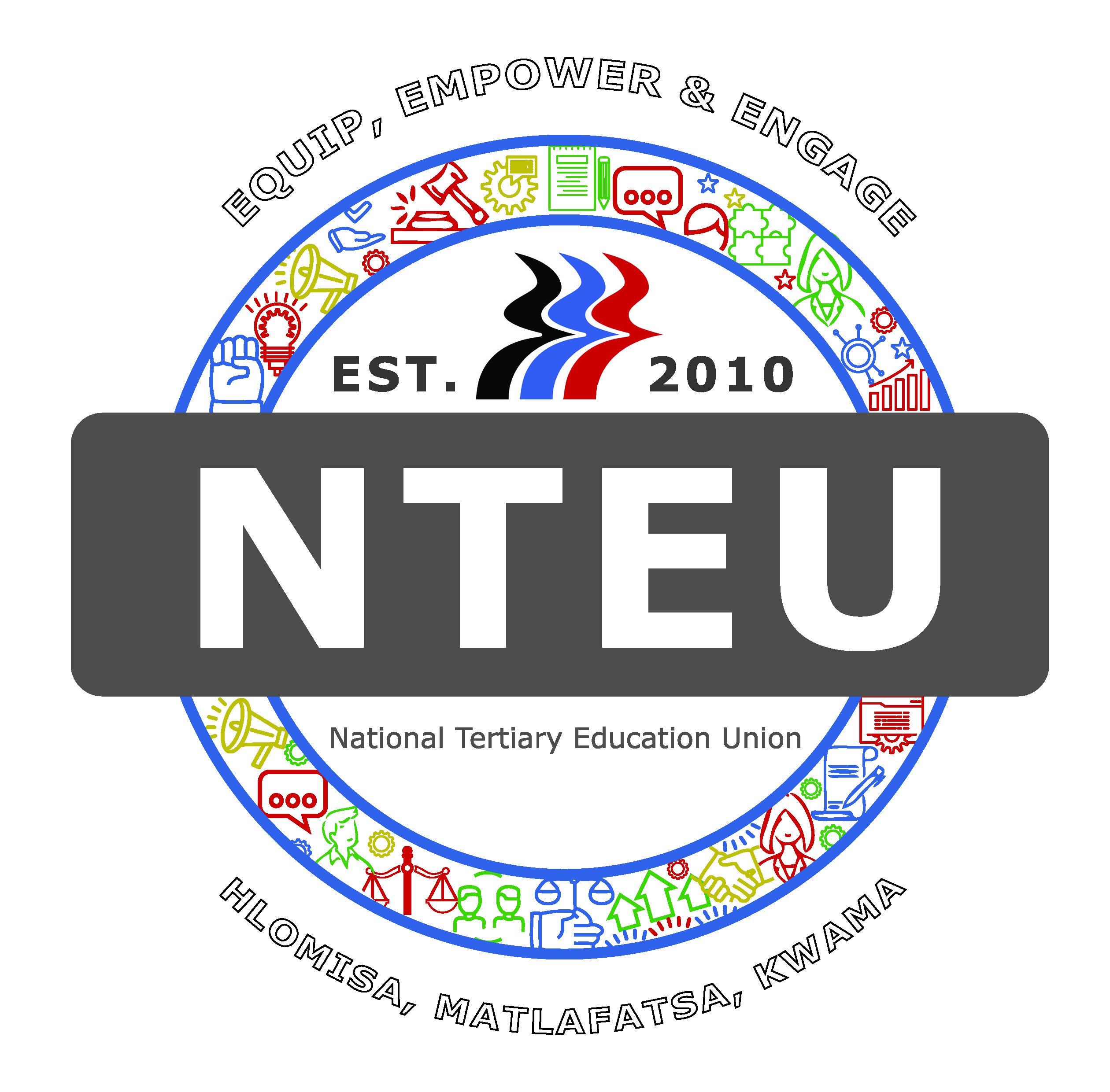
IMBIZO ON THE CRISIS FACING NTEU BRANCHES IN HIGHER EDUCATION
DECLARATION
We, the National Tertiary Education Union (NTEU) convened a National Executive Committee and Council of Chairpersons Imbizo, on 20th October 2016 at the Summerstrand Inn Hotel in Port Elizabeth. This Imbizo was in response to critical dialogues such as transformation, the changing nature of the Fees Must Fall movement and insourcing as a social justice notion, situated in the Higher Education sector.
Chairpersons of NTEU’s Branches including CPUT, CUT, DUT, NMMU, Rhodes, TUT, UFH, UKZN, UL, UMP, VUT and WSU attended the Imbizo. The delegates represented support and academic staff.
The fees must fall campaign has impacted the higher education sector substantively with no clear strategy to address the various concerns raised by students but impact staff (workers) on university campuses. The Imbizo, inspired by the fees must fall campaign, sought to debate these issues with the idea of generating realistic, implementable solutions.
The Bantu education system resulted in an unequal level of education, the remnants of which are still felt 23 years into democracy. The Bantu education curriculum was inherently modelled on a western colonised framework. Against this backdrop NTEU (a leading stakeholder in the Higher Education Sector) recognises that the calls to Africanise and decolonise the curriculum are legitimate.
Cultural integration has not yet been fully realised in existing curricula. Delegates of the Imbizo called for the systematic review of current curricula with the idea of being inclusive and reflecting a regional (African) flavour.
NTEU also recognises that the project to Africanise curricula must result in us becoming more and not less competitive, both on the continent as well as globally.
As an organisation there has been a general acceptance of the original demands of the Fees Must Fall movement.
The South African Constitution, clause 29, places an obligation on the state to make further education more accessible and available. Opening more universities may have made further education more available, however the rising costs to students has in fact made it more inaccessible. The State has therefore not fully delivered on its constitutional mandate.
We are also mindful of the fact that the Fees Must Fall movement has morphed from a non-politically aligned to a politically factionalised movement. This has unintentionally allowed anarchist elements to infiltrate the movement, which have brought with it a disturbingly racial undertone. There have been radical contraventions to the Bill of Rights by some extremists, especially in terms of Section 12(C) of the Constitution - To be free from all forms of violence from either public or private sources; Sections 16(B) - Incitement of imminent violence; or (C) advocacy of hatred that is based on race, ethnicity, gender or religion, and that constitutes incitement to cause harm. These elements have further disregarded Section 17 - Everyone has the right, peacefully and unarmed, to assemble, to demonstrate, to picket and to present petitions. These actions have endangered the lives of students and co-workers alike and NTEU remains steadfast in its condemnation against any forms of violence.
Delegates also noted that the fight for access to Higher Education has adversely infringed on the rights of others attempting to access these institutions. In response to this the call remains that those who infringe on the constitutional and human rights of others must be held accountable to the law.
NTEU believes that the exploitation of workers is unacceptable. Ongoing injustices against outsourced workers is something that cannot be ignored. We commend institutions that have chosen to act against this injustice, however we also suspect that the seemingly knee-jerk reaction to respond to the call before having a comprehensive plan for implementation may have dire consequences within a year or two.
We caution against the potential injustice that could result when an institution is forced to retrench employees in order to accommodate insourcing. NTEU supports decent and sustainable employment expecting that each institution contextualise the movement and considers the legal ramifications, equality, and financial impacts to produce a responsible solution(s). We further maintain the expectation that organised labour must form part of all legal processes as this movement advances.
Going forward NTEU will remain conscious of the different paradigms, factors involved and our country’s history as we continue to be an active participant in the development of South Africa’s future. NTEU has resolved to continue engaging in various platforms made available to it through its federation structure, FEDUSA and other forums that develop to address these real and legitimate concerns.